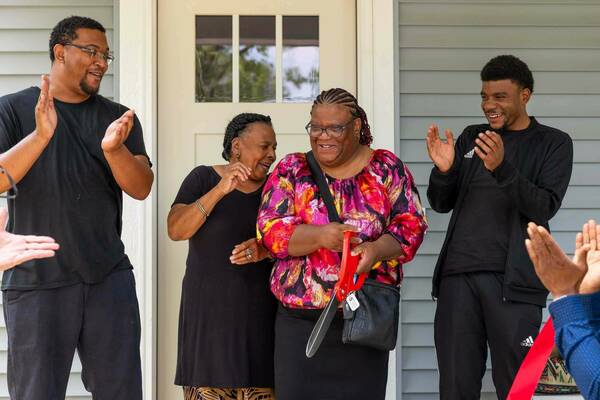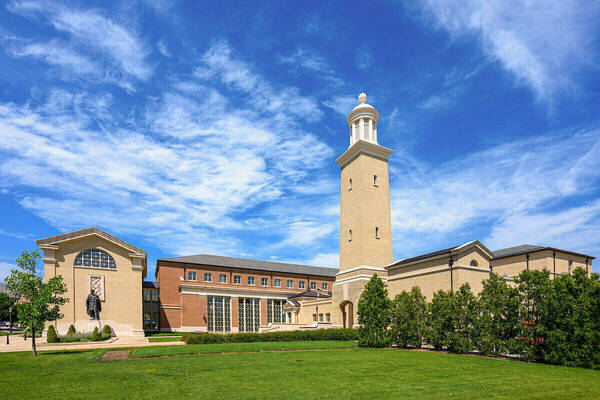Notre Dame partners to grow Indiana’s mental health workforce
Today, one out of every two Americans lives in a mental health workforce shortage area, according to the United States Bureau of Health Workforce (BHW). In many communities, the lack of providers means behavioral health, mental health and substance use-related needs go untreated. To meet Americans’ needs by 2036 would mean training nearly 100,000 new psychologists, along with thousands of social workers, counselors, marriage and family therapists and other providers.
The University of Notre Dame is part of a statewide effort aimed at reversing this trend. In partnership with WISE Indiana, on behalf of the Indiana Family and Social Services Administration’s Division of Mental Health and Addiction (DMHA), the University is contracted to help enhance the recruitment, retention and quality of Indiana’s behavioral health workforce. The effort will also identify promising, data-driven strategies for mental health workforce development that can be applied by future programs across the state.
Gina Navoa Svarovsky, who will lead Notre Dame's efforts, said, "With a problem this large, it's important to explore a wide range of potential solutions." Svarovsky, who serves as the faculty director of the Center for Broader Impacts and an associate professor of the practice in the Center for STEM Education, will oversee the convening of representatives from the state’s 18 Recruitment and Retention Innovation grant awardees to form a Community of Practice that can foster idea sharing, networking and professional learning among project leaders.
Initiatives within the state’s Community of Practice will take several different approaches, such as:
-
Hosting career exploration and training for high school students,
-
Implementing new training opportunities and career pathways for community health workers and addiction peer recovery coaches,
-
Piloting or expanding intern-to-employee career programs, and
-
Providing support for existing providers to reduce unnecessary burdens and prevent burnout.
The members of the Community of Practice will share successful ideas with each other as their projects unfold. The team will also leverage Notre Dame’s expertise in mental health to provide professional development opportunities to members of the Community of Practice over the next three years.
The Community of Practice will be supported by Notre Dame's research strengths in community health and data-driven program evaluation. Campus partners that will contribute to the statewide Community of Practice will include the Center for Broader Impacts, the Community Health and Clinical Partnerships team, the Department of Psychology, the Notre Dame Research Communications Team, and the William J. Shaw Center for Children and Families.
To learn more about efforts to enhance the overall societal impact of research at the University of Notre Dame, please visit cbi.nd.edu.
Contact: Brandi Wampler, associate director of media relations, 574-631-2632, brandiwampler@nd.edu
Latest ND NewsWire
- One year later, Inauguration Build a ‘dream come true’ for Habitat familiesOne year later, work on Inauguration Build 2024 is complete, offering shelter and so much more to five local families.
- Alumni Association and YoungND honor 2025 Domer DozenThe Notre Dame Alumni Association announced its 2025 Domer Dozen cohort, honoring 12 graduates ages 32 and younger for excellence in their contributions in learning, service, faith and work — the core pillars of the association’s mission.
- Faculty receive prestigious early career awards from National Science FoundationDuring the 2024-25 academic year, four researchers in the University of Notre Dame’s Colleges of Engineering and Science received early-career awards from the National Science Foundation.
- Notre Dame School of Architecture poised for global leadership through historic investmentThe $150 million gift represents an unprecedented commitment in the 160-year history of American architectural education. In recognition of this landmark gift, the school will be renamed the Matthew and Joyce Walsh School of Architecture at Notre Dame.
- Banks that identify fraudsters increase loyalty, retain more defrauded customers than others who never were compromisedIn a new research study, Vamsi Kanuri, the Viola D. Hank Associate Professor of Marketing at the University of Notre Dame’s Mendoza College of Business, found that banks that identify fraudsters earn customer loyalty and lose customers if they can’t say who was responsible for a fraudulent transaction.
- Notre Dame to host summit on AI, faith and human flourishing, introducing new DELTA frameworkThe Institute for Ethics and the Common Good and the Notre Dame Ethics Initiative will host the Notre Dame Summit on AI, Faith and Human Flourishing on the University’s campus from Monday, Sept. 22 through Thursday, Sept. 25. This event will draw together a dynamic, ecumenical group of educators, faith leaders, technologists, journalists, policymakers and young people who believe in the enduring relevance of Christian ethical thought in a world of powerful AI.













